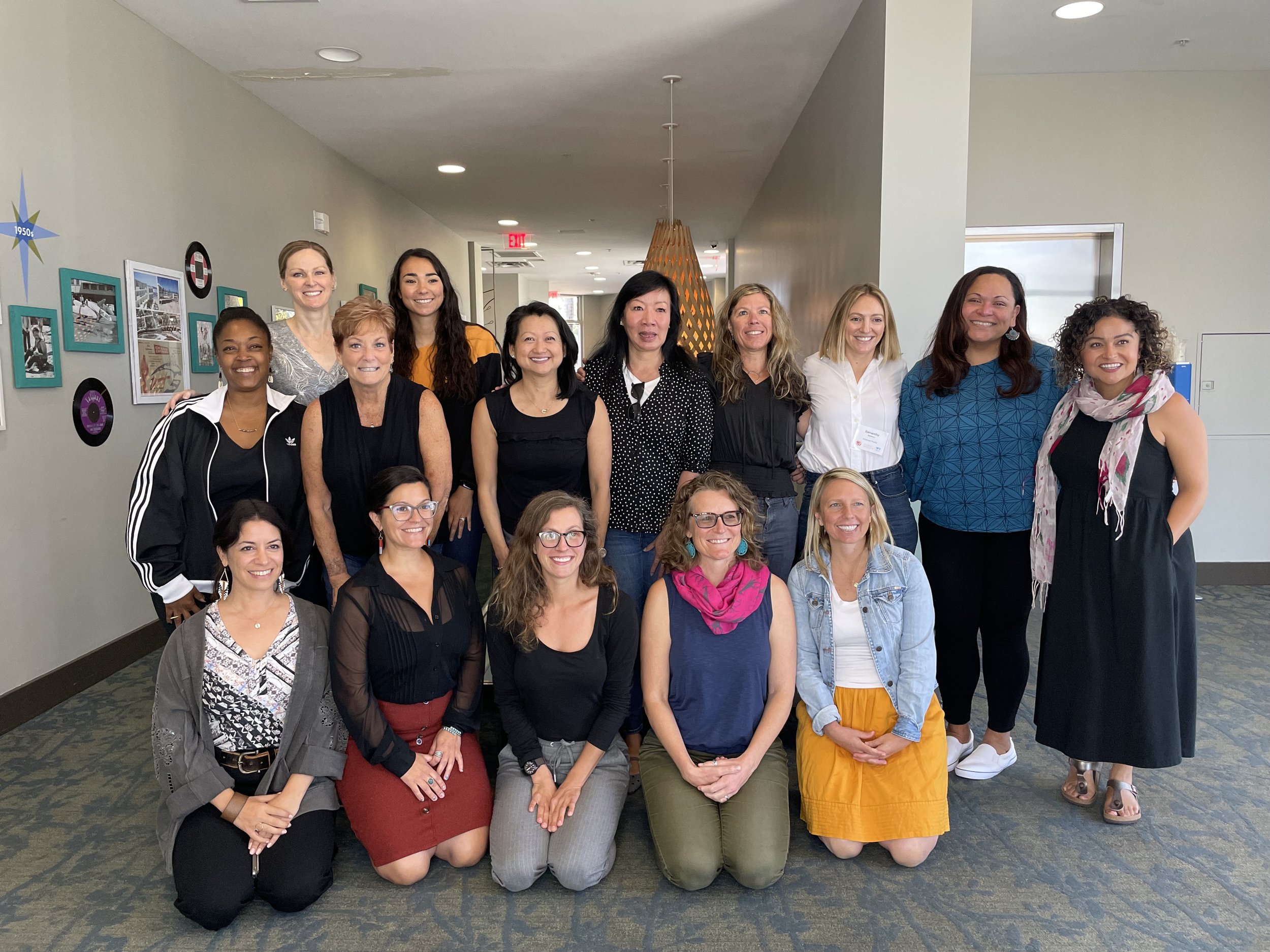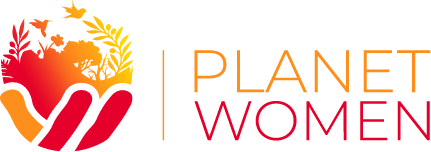Realizing the American Dream for All Women
By Janet Nguyen, Senior Vice President of the 100 Women Pathway
As a two-year-old arriving at Dulles International Airport from Korea in 1972, I don’t remember much but I imagine I had no idea what to expect from this unfamiliar place that I would one day call home. If my mother had realized all that she would face, would she have given up her comfortable life and chosen to come? That is, if women at that time were allowed choices of their own.
For me, immigrating at such a young age meant I didn’t have to struggle with the language as my parents or older sisters did. But outside of the Korean immigrant community in Arlington, VA where we lived, there were signs that we were different beyond our physical appearance. I clearly understood that there were too many of us— two parents, four daughters, and a grandmother—living in a one-bedroom apartment, while “American” families often had typical two-parent, two-child households. We were poor and dressed differently, were too loud, and our food smelled bad.
Janet, her mother, grandmother, and three sisters welcomed by dad after arriving to Arlington, VA. © Janet Nguyen.
My mother refused to eat the fermented cabbage dish called kimchi on the days before she had to go work at the Marine Corps Exchange as a cashier so that she wouldn’t smell bad in front of the Americans. Although kimchi was a staple in any Korean diet and we all continued to eat it around her, she refused because she didn’t want to be one of the Koreans who Americans thought smelled bad. It made me wonder if I smelled bad, but it didn’t bother me enough to stop eating kimchi. However, I did wonder if I would need to give up kimchi when I started working.
Little did I know that some 40 years later, as young girls, my daughters would suffer from similar concerns when their classmates would wrinkle their noses and complain about the smell of the seaweed that they had in their lunches. Naively, I had always assumed that my children, having been born in the US wouldn’t be subject to the same kind of behavior that would make them feel lesser than and like they didn’t belong. How can the world have changed so little over four decades in Northern Virginia, a major metropolitan area with so much diversity?
After the start of the COVID-19 pandemic when we started hearing about hate crimes directed toward Asian Americans, it dawned on me that some people will never consider my children to be “true” Americans because they will always be Asian. Of course, I’m sure many generations of Asian immigrants reached that conclusion long before I did.
Do Asian American immigrants also realize that girls are still subjected to both subtle and blatant gender bias in a way that undermines their feelings of self-worth? Do they understand that our children are inundated with messages that girls and women are inferior to boys and men despite raising our children in a country where views on gender equality are more progressive than the prevalent views in our countries of origin?
Despite my best efforts to change the Asian narrative that girls had less value and to ensure that my three daughters grew up with a strong sense of self and a belief that they mattered just as much as boys, I found that my girls still felt the inevitable bias that permeates girls' lives. It was unavoidable in classrooms, interactions with others, and ever-pervasive social media. How will this change when there seems to be a lack of recognition of just how pervasive gender bias is throughout our society? This gender bias begins sometimes as early as birth within family systems and then in the classroom and into the workplace.
My parents, who have long since passed away, had such strong hopes of equality for their four girls and future generations of the Shin family in America. It would bring them such sadness to know that those hopes would also be marred by indignities and insults all too familiar to the ways they suffered living as proud Asian Americans. I hope over the rest of my lifetime, I can see more progress for Asian Americans and girls and women than I have seen since I arrived in America at the age of two.
Sign welcoming Janet and her sisters to their new home after immigrating from Korea. Translation to English: Welcome my daughters, Mi-Kyeong, Bo-Kyeong, Yu-Kyeong, and Ja-Kyeong. In this spacious and wonderful land, persist and endure and be the daughters I will be proud of. —Daddy © Janet Nguyen.
When I think about my daughters and their childhood, I feel hopeful that we can accelerate change exponentially because, despite the gender bias that my daughters experienced starting at a young age, they made choices outside of gender norms with confidence at an early age. Although they received pushback from both girls and boys about their non-stereotypical choices, they knew what they preferred and stuck to their choices. I always said, “Why limit yourself to ‘girl’ toys when you can play with all toys?” and they found that to be a very sound argument.
They loved imaginative play about house and family but also imaginative play about adventures with swords, bows, arrows, and Nerf guns. They challenged boys to contests of strength and endurance and won without apology. They solved puzzles, created contraptions, and tinkered with technology. They built an elaborate Lego City that still takes up a third of our basement. They chose superhero costumes for many years for Halloween. On occasion, they chose to be Wonder Woman and Super Girl but more often they chose to be Spiderman, Batman, Superman, Wolverine, and Captain America.
Today, my daughters and their friends are much more attuned to the bias and inequity surrounding them than I was at their age. They are more likely to call out microaggressions that women of my generation would have ignored to avoid causing discomfort to others. They question things that I never thought to question.
For older women who grew up and worked in environments where bias and inequities were pervasive, we lack the awareness that younger women seem to have much earlier. This lack of awareness of the bias that surrounds us makes it so that even with the best intentions, as leaders we all continue to unknowingly propagate the systems that weave inequality into our current and future reality.
This makes the work we are doing at Planet Women all the more urgent. Planet Women was founded to partner with women to create a healthy planet for the benefit of all life. (Note: “women” includes cisgender women, transgender women, femme/feminine-identifying, genderqueer and nonbinary individuals who have historically been excluded from the environmental space.) Through Planet Women’s 100 Women Pathway, we have created a unique experiential leadership program for women, especially women of color, focused on their personal journeys.



Three cohorts of the 100 Women Pathway have now completed since 2022. © Planet Women.
Although leadership development is interwoven throughout the transformational eight-month program, the 100 Women Pathway is primarily about each woman finding and amplifying the power within herself. Planet Women connects rising and established women leaders in a community bonded by shared experiences. Together, we uplift one another and drive collective change within the environmental sector and in our organizations and communities. Only with more women leading will we see better outcomes for people and the planet.
Janet Nguyen is passionate about helping women find their inner power and increase their impact in the critical work they do to care for our planet. She leads the 100 Women Pathway, which is designed to rapidly elevate more women, especially women of color, into C-suite roles in the environmental space. Janet has extensive human resources leadership experience in the tech and conservation sectors, and advocates for leadership that is grounded in justice, equity, diversity, inclusion, and belonging.



